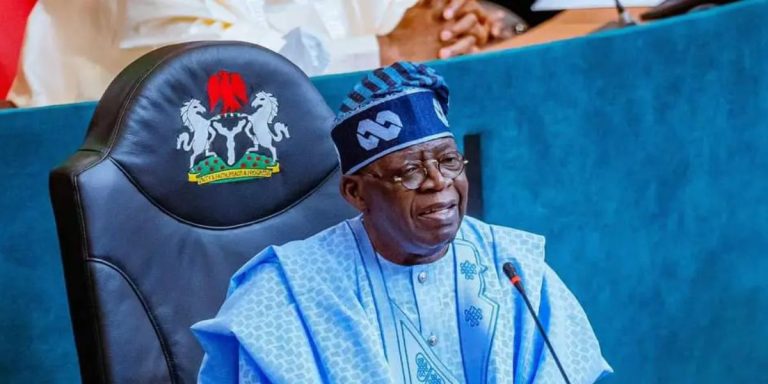By HeadlineNews.News Investigations Desk
On May 29, 2023, when President Bola Ahmed Tinubu announced the end of the fuel subsidy regime, the nation was split between hope and fear. Few outside the corridors of power fully understood the scale of rot that had taken root under the guise of petroleum subsidy. But insiders knew: this wasn’t just an economic adjustment—it was the shutdown of a multibillion-naira fraud infrastructure that had long bled the nation.
One of the most emblematic cases of this systemic plundering was the subsidy fraud scandal involving Mamman Nasir Ali, son of former PDP National Chairman, Ahmadu Ali. Mamman Ali, alongside his co-conspirator Christian Taylor, was indicted for fraudulently obtaining over ₦2.2 billion through forged documents, false pretenses, and collusion with corrupt public officials—all under the cover of fuel importation.
The Scam Unmasked: How ₦2.2 Billion Was Stolen
In a case prosecuted by the Economic and Financial Crimes Commission (EFCC), Mamman Ali was accused of collecting ₦1.48 billion as “subsidy claims” for the importation of 20.49 million litres of petrol—without importing a single litre. The company involved, Nasaman Oil Services, had submitted falsified shipping and importation documents that were shockingly validated by relevant government agencies, pointing to deep institutional complicity.


Further investigations showed that with the help of an accomplice operating from Sierra Leone, Ali fraudulently acquired a total of over ₦2.2 billion in subsidy claims. The funds were wired and laundered using both foreign and domestic accounts, with a trail of payments reportedly reaching multiple government insiders.
This case was only one of dozens, many of which were quietly buried, under-prosecuted, or permanently stalled due to political interference or the influence of elite power networks.
The Subsidy Fraud Industry: A Legacy of Corruption
According to a 2012 Presidential Committee on Fuel Subsidy, over ₦2.6 trillion was paid to oil marketers in just one year—₦1.1 trillion of which was fraudulent.
In 2022 alone, Nigeria spent ₦4.39 trillion on subsidy payments—more than the combined budgets of education, health, and infrastructure.
The Nigerian National Petroleum Company (NNPC) admitted in 2022 that it could no longer remit revenue to the Federation Account due to the rising cost of subsidy.
The subsidy regime effectively became a drainpipe, benefiting a small group of politically connected individuals and their foreign collaborators, while the nation slipped into borrowing to pay salaries, rather than fund development.
Zanga Zanga and the Reaction of the Looting Class
When President Tinubu ended the subsidy, it struck a nerve among entrenched interests. In August 2024, violent protests—known informally as the “Zanga Zanga” unrest—erupted across parts of Nigeria. Investigative reports later linked several instigators of the protests to former subsidy beneficiaries, many of whom had lost access to easy money.
This was a clear signal: the subsidy scam wasn’t just an economic policy issue—it was a deeply entrenched cartel system, and dismantling it triggered resistance from those who had built fortunes on national decay.


Floating the Naira: Tackling Forex Racketeering
Complementing the end of the subsidy regime was another bold step—floating the naira. The move exposed and ended the lucrative forex arbitrage racket where a few elite individuals accessed dollars at official rates and resold at parallel market rates for massive profits.
Prior to the float, Nigeria operated a dual exchange rate regime, costing the economy an estimated $10 billion annually in lost value.
Since the float, the CBN has unified forex windows, improved transparency, and launched surveillance on front companies used in round-tripping and capital flight schemes.
Dogged Reforms, Despite Resistance
Critics argue that the reforms have caused short-term pain—rising inflation, higher fuel prices, and weakened consumer spending. However, economists and global institutions like the World Bank and IMF have praised the reforms as “long overdue and necessary for structural stability.”
“The end of the subsidy is saving Nigeria an average of ₦400 billion monthly,” noted an October 2023 World Bank Nigeria report. “This is money that can now be redirected to health, education, infrastructure, and productivity.”
Even former opponents have begun to admit that President Tinubu has taken the most courageous economic decisions since 1999—targeting not just inefficiencies, but entire syndicates that had held Nigeria hostage for decades.

Conclusion: Justice Must Follow
As more fraud cases like Mamman Ali’s come to light, Nigerians are demanding justice. Ending the subsidy was one battle; the next is accountability. Prosecutions must be completed. Convictions must follow. Assets must be recovered.
President Tinubu’s reforms have begun to dismantle a corrupt order. But for them to succeed, there must be a consequence system that ensures no Nigerian ever again loots the treasury and walks free because of pedigree or political connections.
The era of “government by credit alert” is over. Nigeria, though bruised, is being rebuilt—one courageous decision at a time.
© HeadlineNews.News | All rights reserved.




